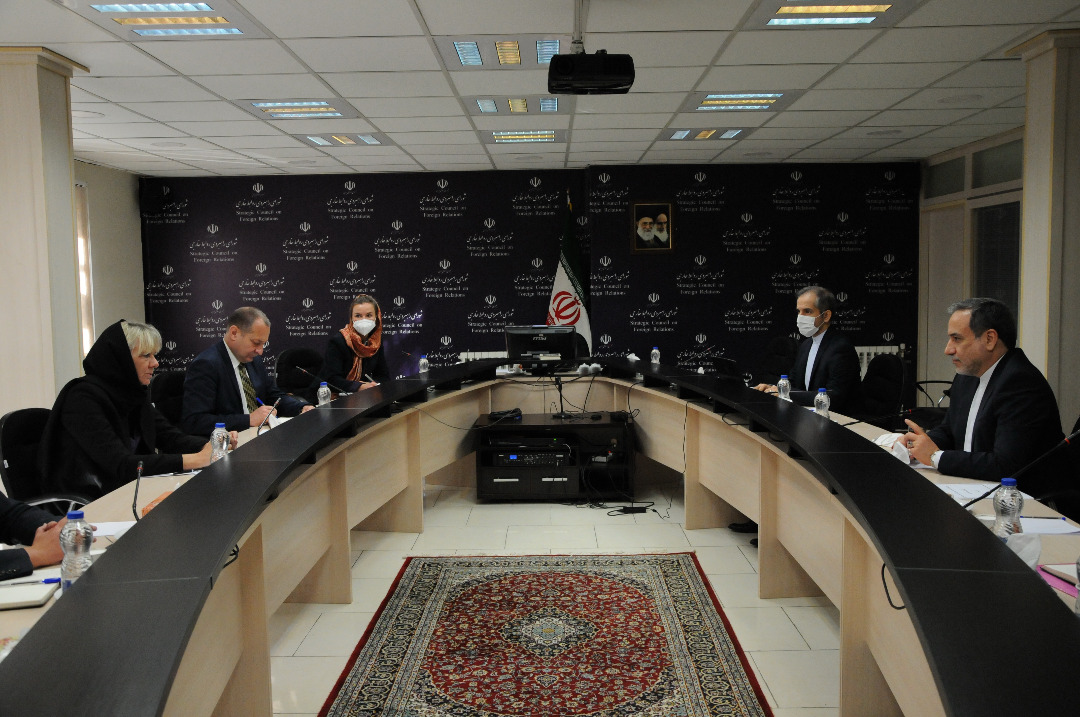In a meeting with the Deputy Special Representative of the UN Secretary-General for Afghanistan, Matte Knudsen, held at SCFR Building No. 2, Dr. Seyed Abbas Araghchi discussed a wide range of issues on Afghanistan, including the current situation in the country, security concerns, and ISIS terrorism, and the future of governance in Afghanistan.
The SCFR Secretary said Iran’s position was in line with following the regional approach to resolving the problems of Afghanistan, the formation of an inclusive government in Kabul, ensuring security in this country and border security with the Islamic Republic of Iran. He also stressed Iran’s special attention to the Afghan issues particularly following the appointment of Special Representative of the IRI President for Afghanistan.
Araghchi blamed the United States for the current unrest in Afghanistan, saying the US presence in the West Asian region had caused nothing but turmoil for the people of the region.
Deputy Special Representative of the UN Secretary-General for Afghanistan also praised Iran’s effective role in Afghanistan and the reception of Afghan refugees and asylum seekers and stressed the need to maintain and continue UN consultations with Iran on this issue.
Knudsen, meanwhile, described the situation on the ground in Afghanistan, stressing the need for the international community to pay serious attention to the fundamental problems of the Afghan people, especially with winter approaching.










0 Comments